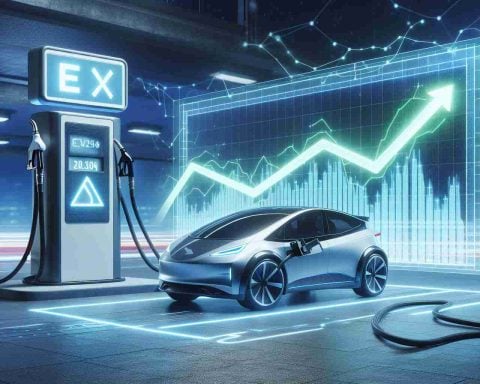Technology and resource management are converging in unprecedented ways. China is preparing to implement new export restrictions on critical minerals essential for the electric vehicle (EV) sector, amidst escalating tensions with the United States ahead of Donald Trump’s new administration.
The Chinese government recently signaled intentions to broaden its list of controlled exports, targeting battery cathode technology alongside existing restrictions on lithium and gallium extraction technologies. These restrictions come on the heels of a previous ban on various materials important for semiconductor production, such as gallium and germanium, initially imposed in response to U.S. semiconductor export controls.
This initiative may be part of China’s broader strategy to consolidate its position in the global battery supply chain. Experts suggest that if these proposed measures are enacted, they could reinforce China’s dominance over lithium processing, which is pivotal for manufacturing batteries that power everything from portable electronics to electric vehicles. China currently holds a significant share, managing approximately 70% of global lithium processing.
The global appetite for lithium-ion batteries is set to escalate dramatically, with forecasts indicating that the energy needs could surge from 700 gigawatt hours in 2022 to about 4,700 by 2030. This rising demand necessitates careful consideration by Chinese authorities to avoid potential backlash from Western nations.
In conjunction with these proposed regulations, China has also placed 28 U.S. entities, including prominent defense firms, under its own export control measures, reflecting ongoing tensions in tech and resource management.
China Tightens Grip on Critical Minerals: What This Means for the EV Market
Overview
As the global demand for electric vehicles (EVs) continues to rise, the landscape of resource management and technology is rapidly evolving. Recent developments in China highlight the critical intersection of these fields, particularly concerning the export of essential minerals for battery production. Understanding the implications of these shifts is crucial for stakeholders across the EV sector.
New Export Restrictions and Their Implications
China is reportedly preparing to implement stricter export limitations on crucial minerals integral to the EV industry. The government’s focus extends beyond lithium to include battery cathode technologies and other resources relevant to semiconductor manufacturing, following earlier restrictions on materials like gallium and germanium. This move is seen as part of a strategic effort to maintain China’s competitive edge in the global battery supply chain.
China’s Dominance in Lithium Processing
China currently dominates the lithium processing market, controlling approximately 70% of global supplies. This dominance raises several questions about international supply chains and the future of EV production. The projected increase in demand for lithium-ion batteries—from 700 gigawatt hours in 2022 to about 4,700 by 2030—exacerbates this issue. As the world pivots to greener technologies, countries reliant on imports of these minerals may find themselves at a strategic disadvantage.
Pros and Cons of China’s Restrictions
Pros:
– Enhanced Control: By limiting exports, China can ensure that its domestic manufacturing and technological capabilities remain strong.
– Market Leverage: These restrictions could provide China with negotiation power globally, especially against Western nations seeking to secure their own supply chains.
Cons:
– Global Supply Chain Disruption: Reduced availability of critical minerals can lead to delays and increased costs for EV manufacturers worldwide.
– Potential Backlash: Such moves could trigger countermeasures from other countries, potentially escalating trade tensions.
Trends in the EV Market
The increasing reliance on electric vehicles is transforming traditional automotive supply chains. As the demand for EVs grows, manufacturers are exploring diverse solutions to mitigate risks associated with supply chain disruptions. Emerging trends include:
– Local Sourcing: Companies are looking to diversify and localize their supply sources to become less dependent on China.
– Innovative Recycling: Advances in battery recycling technology are being prioritized to reclaim valuable materials and reduce reliance on new mineral extraction.
Security Aspects
In light of these developments, security concerns surrounding the supply of critical minerals have become prominent. Countries are urged to develop robust frameworks to safeguard their industries from potential monopolistic practices.
Market Predictions
Industry analysts predict that as electric vehicle adoption accelerates, the demand for lithium and other minerals will continue its upward trajectory. Organizations are encouraged to invest in research and development to innovate extraction and processing technologies, ensuring a sustainable future for the EV market.
Conclusion
China’s impending export restrictions reflect broader geopolitical dynamics that will significantly impact the EV sector. Stakeholders must stay informed and adapt their strategies accordingly to navigate these challenges effectively.
For more information about emerging technologies and market shifts, visit Tech News World.










